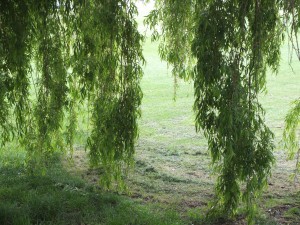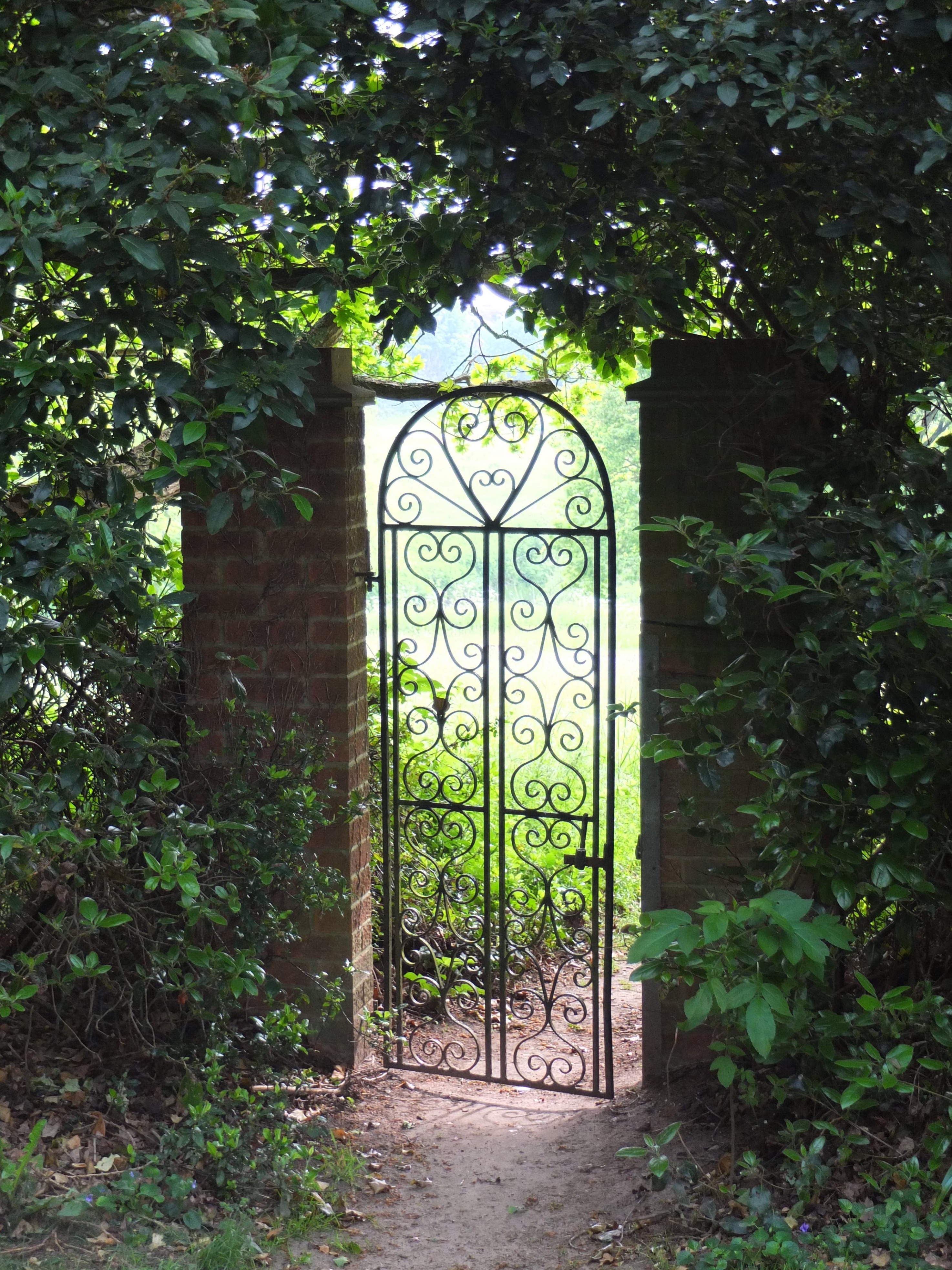 A few evenings ago I watched a fascinating TV documentary about Kenneth Grahame and the creation of ‘The Wind in the Willows’. The story is an interesting one, but I was somewhat disappointed that the program made little reference to what seems to me one of the key elements of the book, and to the strange fate that has befallen it.
A few evenings ago I watched a fascinating TV documentary about Kenneth Grahame and the creation of ‘The Wind in the Willows’. The story is an interesting one, but I was somewhat disappointed that the program made little reference to what seems to me one of the key elements of the book, and to the strange fate that has befallen it.
I have, in a previous post, recommended Jackie Wullschlager’s excellent book ‘Inventing Wonderland’, which is a study of a small group of contemporaneous authors – J. M. Barrie, Lewis Carroll, Kenneth Grahame, A. A. Milne and Edward Lear. The common thread uniting these writers – if you accept Ms Wullschlager’s premise (which I do!) – is that they each contrived to create a classic work of ‘supposed’ children’s fiction whilst themselves exhibiting traits indicative of an inability to fully realise the transition from childhood to adulthood. I say ‘supposed’, of course, because in spite of this exigency these works speak as much (if not more) to adults as they do to children – which may well go a long way to explaining their enduring appeal.
I have a little knowledge of the subject because – half a decade ago and more – I studied in some detail the life of J. M. Barrie. I was writing a play at the time about Barrie and the creation of ‘Peter Pan’ and in the course of my research I happened upon Ms Wullschlager’s book. The play was completed about six months before the frankly inaccurate and overly simplistic Johnny Depp film hit the multiplexes, and you can probably imagine how ‘thrilled’ I was at that particular turn of events!
When it comes to ‘The Wind in the Willows’, however, the background to the book’s creation interests me less than some of the content therein – in particular the seventh chapter – ‘The Piper at the Gates of Dawn’. When I first read the book as a youngster (probably about the same time as first heard an adaptation on the Home Service) it was this section that affected me most. Years later – when shopping for classic children’s books as a gift for the progeny of a friend – I found myself browsing through a lavishly illustrated hardback edition (sadly the illustrations were neither the wonderful originals by E. H. Shepard nor the later Arthur Rackham variants). I scanned the book idly, looking for the familiar prose of my favourite chapter…
…only to find that it was not there!
I looked again – and again! The chapter was missing…
Now – I am aware of only one or two instances in which elements of children’s books have been selectively edited out. I can just about imagine circumstances in which something that was once thought acceptable is no longer deemed to be so – but what on earth could possibly offend in ‘The Wind in the Willows’?
For those not familiar with the book, chapter 7 describes how – one hot, breathless summer night on which no-one can sleep – Ratty and Mole help Otter to search for his missing son, Portly. As dawn nears – after a fruitless night of searching – Ratty is suddenly captivated by the distant sound of ethereal music. Entranced they follow the mystical cadences to their source, where they encounter – on an island in the middle of the stream – a vision of the great god, Pan. The missing Portly is discovered fast asleep between the god’s hooves.
Rosemary Hill – writing in the Guardian in June 2009 – decribes this mysterious chapter thus:
“Those of them who went on searching for the divine often found it enveloped in clouds of pantheism and neo-paganism, spiritualism and theosophy, the faiths of the doubtful. It is this diffuse but potent supernaturalism that appears in The Wind in the Willows in one strange, unsettling chapter, “The Piper at the Gates of Dawn”. It is a section that abridgers of the book have always been quick to drop, though Grahame himself thought it essential” … “Whether it is the latent homo-eroticism of the vision or simply the sudden change of tone that makes the scene so uncomfortable, it is certainly a failure. But while artistically it is the weakest part of the book, it is at the same time the key to it.”
There is much to dispute in Ms Hill’s reading, not least the assertion about the ‘faiths of the doubtful’, which – by her tone – I gather she intends pejoratively. I would prefer to substitute ‘sceptical’ – the definitions of which include: “a person who habitually doubts the authenticity of accepted beliefs” and “a person who doubts the truth of religion, esp Christianity”. The InterWebNet offers a plethora of examples of those of established faiths – in particular Christianity – attempting to appropriate the text in support of their own beliefs. This is actually quite offensive. Grahame is far too good a writer: had he intended this interpretation he would have written it.
 It is strange that the chapter that Ms Hill describes as a “failure” and “the weakest part of the book” should have had such an effect on me as a child that I habitually look for it first whenever I pick up the book. Grahame is right to consider it essential, and it is indeed – for me – the key to the book. Grahame comes as close as anyone ever has to capturing the essence of the numinous experience. Here Ratty first hears the magical music:
It is strange that the chapter that Ms Hill describes as a “failure” and “the weakest part of the book” should have had such an effect on me as a child that I habitually look for it first whenever I pick up the book. Grahame is right to consider it essential, and it is indeed – for me – the key to the book. Grahame comes as close as anyone ever has to capturing the essence of the numinous experience. Here Ratty first hears the magical music:
“Rat, who was in the stern of the boat, while Mole sculled, sat up suddenly and listened with a passionate intentness. Mole, who with gentle strokes was just keeping the boat moving while he scanned the banks with care, looked at him with curiosity.
`It’s gone!’ sighed the Rat, sinking back in his seat again. `So beautiful and strange and new. Since it was to end so soon, I almost wish I had never heard it. For it has roused a longing in me that is pain, and nothing seems worth while but just to hear that sound once more and go on listening to it for ever. No! There it is again!’ he cried, alert once more. Entranced, he was silent for a long space, spellbound.
`Now it passes on and I begin to lose it,’ he said presently. `O Mole! the beauty of it! The merry bubble and joy, the thin, clear, happy call of the distant piping! Such music I never dreamed of, and the call in it is stronger even than the music is sweet! Row on, Mole, row! For the music and the call must be for us.'”
…and after their encounter with the god…
“Sudden and magnificent, the sun’s broad golden disc showed itself over the horizon facing them; and the first rays, shooting across the level water-meadows, took the animals full in the eyes and dazzled them. When they were able to look once more, the Vision had vanished, and the air was full of the carol of birds that hailed the dawn.
As they stared blankly. in dumb misery deepening as they slowly realised all they had seen and all they had lost, a capricious little breeze, dancing up from the surface of the water, tossed the aspens, shook the dewy roses and blew lightly and caressingly in their faces; and with its soft touch came instant oblivion. For this is the last best gift that the kindly demi- god is careful to bestow on those to whom he has revealed himself in their helping: the gift of forgetfulness. Lest the awful remembrance should remain and grow, and overshadow mirth and pleasure, and the great haunting memory should spoil all the after-lives of little animals helped out of difficulties, in order that they should be happy and lighthearted as before.”
This is not merely Edwardian whimsy, nor some failed attempt at a search for the supernatural. ‘The Wind in The Willows’ is about Longing and Loss (which – along with Love – are the three great subjects of all art) written during a golden summer in which everything seemed possible, but at the zenith of which everything might also be lost – as indeed proved to be the case as the world spiralled into the maelstrom of the new century.
Tags: England, Loss, Piper at the Gates of Dawn, spirituality, Writing
-
Thank you for your post.I just listened to this section and did not remember it from the reproductions of my childhood. I think it’s being removed might add a little to the elusive magic of the moment itself. I also found Rosemary Hill’s interpretation. This section is not artistically weak. It flows beautifully into and out of fantasy in the same way the river flows through the whole story.
On the other hand it did stick with my enough that I needed to look it up, needed to know what others thought of it, what people felt about it and how they portrayed it, whether it really was pan that they met or had I just misunderstood?
Also from Victoria by the way. Hope your journey succeeds.
-
This summer I slept under the stars in Monument Valley, Utah; heard the Navajo pipe up the dawn. Back in the UK, even with photographic evidence that I was there, I have been struggling to write about it, contextualise it. I find myself reading chapter seven again in a copy of the Wind in the Willows I haven’t looked at for more than fifty years.
I searched the internet and found this. It is true.
-
Comments are now closed.


8 comments